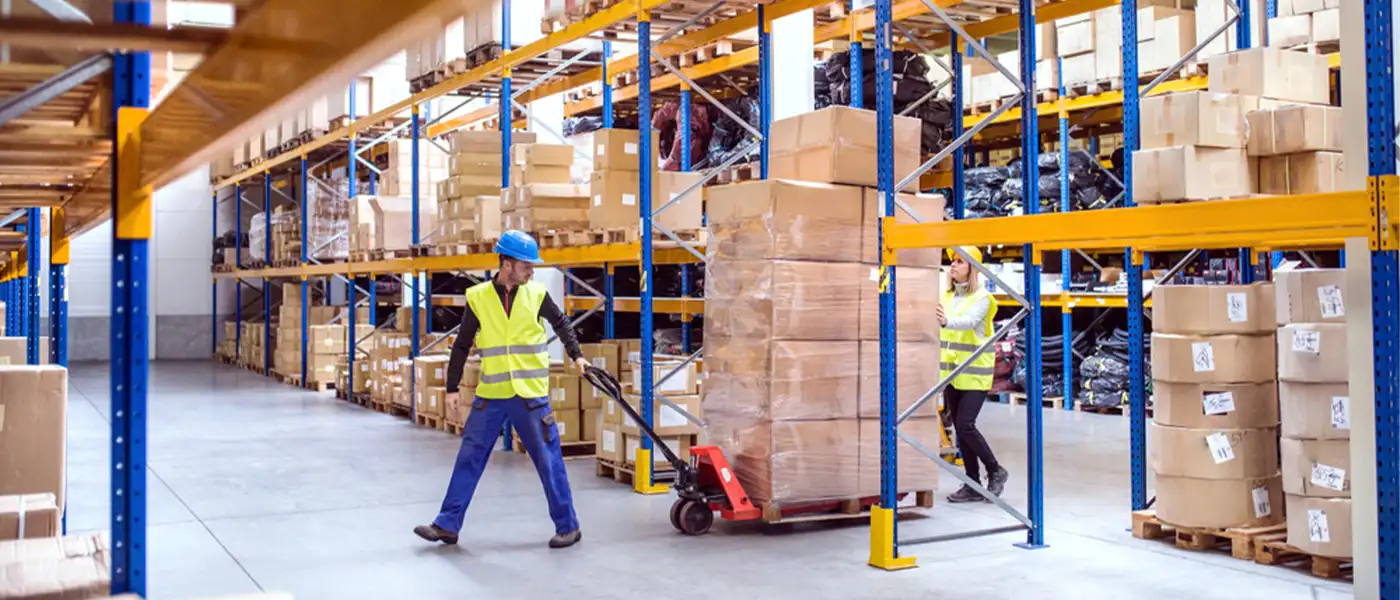The International Chamber of Commerce (ICC) has formulated two incoterms, namely DDU (Duty Delivery Unpaid) and DDP (Duty Delivery Paid). They combine and streamline international shipping and commerce undertakings. The following article discusses DDU and DDP in-depth and helps you choose the most suitable one.
What is Delivery Duty Paid (DDP)?
Delivery Duty Paid (DDP) is a shipping incoterm that implies that the goods’ seller will bear all the bills they require for shipping the goods to the buyers. It suggests that the seller will pay all the fees, including tax or duty under goods, bear the risk, and all other expenses that facilitate the successful delivery of goods. Moreover, they do everything possible to ascertain that the goods safely reach the buyers. Experienced online shoppers are more familiar with paying duties and customs on cross-border purchases.
Seller responsibilities
- Organizing goods according to the buyer’s order and sharing the invoice of the order.
- Providing the documentation demonstrating the buyer has bought goods from the seller.
- Including appropriate labelling so that goods become eligible for export.
- Packaging the goods according to the export SOPs.
- Bearing custom duty clearance at the point of shipment and paying the export duties.
- Organizing and paying for the main carriage and loading the goods on the main carriage.
- Organizing and paying for the freight to transport the goods from the seller’s warehouse to the port of shipment.
- Goods clearance at the customs in the port of destination and paying all the taxes or import duties, including the VAT (if valid).
- Paying for all types of checkups on the port of shipment and the port of destination.
- Preparing and sharing the proof of delivery with the buyer to demonstrate that delivery is successful.
- Arranging and paying for the forward carriage from the port of shipment to the buyer’s destination.
Advantages of DDP
Streamlines the buyers’ tasks
DDP shipping ensures the buyers only need to be involved in the shipping processes in their own country. They can save costs by accomplishing the shipping processes assumed in the DDU contracts. Moreover, they can save costs in the forward carriage by using their network in the cargo and local freight.
They can use their contracts and networks at the customs to clear their goods from the inspections and import formalities. They can independently choose the destination for goods delivery.
Since the seller is responsible for handling each step in the shipping, their entire shipping process is simplified to decrease risks. They control all shipping steps, and therefore, they can expedite the shipping process.
Other benefits of DDP
- They rigorously supervise transport and warehouse solutions until the buyer receives the goods.
- You pay the expense of sales tax, VAT, customs duties, etc. Since you pay for the costs upfront, the customer doesn’t have to look after the hassles and delays while paying a customs broker in their own country before getting a package. The carrier bills its customers for the customs costs.
- A customer’s freight will arrive quickly since there are no delays due to customs.
- Payment processes are transparent because the seller is responsible for every payment without seeking financial assistance from the buyer. You can track all the payments easily.
What is Delivery Duty Unpaid (DDU)?
The seller is accountable for all the charges in the DDP shipping model. Contrastingly, in Delivery Duty Unpaid (DDU) shipping model, the buyer of the goods is accountable for paying the entire fees. If the seller doesn’t pay the fees before shipping, the payment responsibility will move on to the buyer.
Seller responsibilities
- Organizing goods according to the buyer’s order.
- Paying for the export duties and handling other export procedures.
- Appropriate packaging and labeling of goods according to export regulations.
- Ensuring safe delivery to the port of shipment.
- Clearing the goods and making their payment at the pre-shipment checkup at the port of shipment.
- Loading of goods at the port of shipment.
- Paying for the main carriage.
- Offering the appropriate documentation to the buyer.
- Delivering the goods at the port of destination.
Advantages Of DDU
Streamlines the seller’s tasks
Since the seller owns the major responsibilities in their country, it is feasible for them to handle the shipping process. The seller need not be involved in customs and examination at the destination port. Moreover, the seller will not encounter unforeseen VAT at the port of destination. They don’t have to organize the carriage in the destination’s country.
The seller is accountable only for transporting the cargo to its destination. Subsequently, the buyer will deal with all the legal processes.
Provides more control to the buyer
In most scenarios, the buyer owns a strong network with various logistic companies and clearing agents. DDU shipping streamlines faster transportation and clearance by the buyer. This shipping incoterm provides the buyer more control over the shipping processes. For international buyers anticipating maintaining a steady flow of inventory, excellent control of the shipping process is crucial. DDU shipping makes it easier to control costs and track shipments.
In DDU shipping, buyers can easily control costs and track shipments. This is because they are well-versed in their country’s shipping rules.
Cost-effective for the buyer
They do not add customs, taxes, and transport fees to the purchase price. So, the buyer finds it more affordable to purchase the products first and handle other expenses after the goods get offloaded. Moreover, DDU shipping removes the administrative fees from the purchase price.
What do DDP and DDU have to do with my e-commerce business?
When shipping overseas, several countries can impose a tax or duty on the shipment. Being an e-commerce business owner, you are independent in deciding whether you wish to pay the particular duty or pass on that cost to your customer.
The decision between duty or tax depends on factors like the point of origin, freight purpose, shipping destination, and order’s declared value.
When comparing DDU vs DDP, DDU is a more affordable alternative for e-commerce businesses, and it equips the informed buyer with greater control over the shipping process.
What Do DDP Incoterms Include?
The agreement of DDP incoterms includes custom clearance, import duties, and VAT. The seller is responsible for paying all these fees.
Does DDP Shipping Include VAT?
Yes, except stated otherwise by the sender, the sender must pay VAT in DDP shipping. Online merchants using the DDP Incoterms must always confirm any VAT requirements before selling their goods online. This helps them accurately calculate their profit margin and shipping costs. Under some unique agreed terms between the seller and the buyer, the seller bears the VAT and other local charges.
Does DDP Include Customs Clearance?
Yes, the seller needs to pay for the customs clearance in DDP shipping. The seller must undertake meticulous research and consider the additional cost of the customs clearance and its influence on their total shipping costs and profit margin.
Why Should You Care About DDU and DDP?
Before delivering goods to the buyer’s destination, a seller has to deal with several stages. The seller needs to supervise stages like product procurement, packaging, warehousing, transportation, and disbursement of duty fees. Analyzing the pros and cons of DDU and DDP shipping makes it easy to choose the most suitable one. Moreover, caring about DDU and DDP shipping helps you know the most affordable shipping method.
DDU Vs. DDP: Which is Better?
The following factors help you determine which to choose from DDU vs DDP.
DDP is costlier
If your business intends to cut down on costs, DDP is not a viable solution. The reason is when using the DDP shipping method the seller will bear several expenses, including the duties paid to the customs and several other underlying fees. Rather than cutting down on costs, it adds to the expenses. Moreover, the seller needs to pay extra fees when the buyer can’t arrive to pick up or claim their goods.
On the other hand, DDU is a cheaper shipping method for sellers. is that the seller’s control covers all the services. The buyer is accountable for paying the taxes, shipping services, and import and export duty. So, the responsibility on the seller’s shoulders is less. DDU shipping method permits the buyer to bear the entire financial responsibility for the freight. Consequently, it saves the seller’s effort and money upfront. Note that DDP shipments are costlier upfront because the express couriers will process the payment to customs on your behalf (by charging an additional fee).
Buyers are unaware
Using the DDU shipping method can save on cost but it can negatively influence your customer experience. Several customers may not know they must pay a customs duty.Meanwhile, the customers discern that it may be late and they may not make the payment due to scarcity of cash.
DDU bolsters shipment abandonment
The seller must always aim to decrease cart abandonment. An easy-to-understand template can help sellers communicate their shipment conditions and ultimately decrease the cart abandonment rate. Using an efficient global trade model that entices customers to purchase from your business can reduce your shopping cart abandonment rate.
But if you use the DDU model, the shipment abandonment rate increases. The reason is many customers may not be able to pay the customs duty. Furthermore, when the customers abandon the shipment, the courier company will return the freight at an extra fee.
DDP increases customer satisfaction
If you can pay the duties, it helps to boost your customers’ satisfaction. If customers are satisfied, they may have repeated purchases from your business.
DDP shipping incoterm guarantees a better customer experience. This is because the buyer is not concerned about a country’s shipping requisites or customs processes. They receive their ordered goods directly at their location without any hassles.
DDP shipping incoterms equip buyers with comprehensive control of the shipment movement process. They can track each stage of the shipment process. So, they benefit from a transparent shipping process and reliable customer experience.
In terms of customer satisfaction, DDP is a better option, and it ensures a smooth shipping experience.
Tips for Handling DDP/DDU
Whether you use the DDP or DDU shipping method, you must take utmost care. The following tips help e-commerce sellers to streamline their cross-border shipping process.
Think regional
Understand the fundamental differences in the customs policies between the different countries. Each of them will feature its own guidelines for accepting shipment into their borders. Moreover, different countries follow different rules for prohibiting certain goods. Thinking regionally can help you better handle DDP/DDU shipping incoterm.
Be aware of de minimis rates
The majority of Southeast Asian countries define a tax threshold for the shipped parcels. You’ll only have to pay a higher tax if a parcel surpasses the de minimis value. This value is significant in the e-commerce industry because it influences the factors like the number of parcels the sellers can ship abroad, the shipping price for each parcel, and how much the customers will pay after the parcels reach customs.
For example, considering the APAC region, in Indonesia, shipments lower than $75 are charged a tax of Rp. 20.000, or approx. $2. The shipments exceeding $75 may be set anywhere in the range of 7.5% to 30% in the form of fees and taxes.
The following table shows the de minimis rates of some of the Southeast Asian countries.
| Southeast Asian Country | De Minimis Value |
| Indonesia | USD 75 |
| Singapore | SGD 400 |
| Malaysia | MYR 500 |
| Thailand | THB 10,000 |
| Philippines | PHP 1,000 |
| Vietnam | VND 1,000,000 |
| Brunei | BND 400 |
Include DDP fees in your product prices
If you decide to use the DDP shipping method, you can counterbalance some of the expenses by adding a portion of your processing fees to the product price and adding another portion to the shipping fees.
For example, if a product costs $400, processing fees and DDP costs $30, and shipping costs $15. You can list the product for $410, with a $35 shipping fee.
Transparency is non-negotiable
It applies to both DDU and DDP. You can add the DDP fee to the customer’s shipping cost; however, you must inform them why they must pay more. You could attach a note at checkout, in a FAQ section, or on their purchase slip. The note will explain that the added fee guarantees timely and safe parcel delivery.
When using DDU shipping incoterm, you should get your customers’ consent and acknowledgment for those extra fees before their orders get processed. If not done, they may feel insecure about paying extra.
Conclusion
Both DDU and DDP shipping incoterms guarantee safe, reliable, and timely cross-border shipments. You can choose the DDP shipping method if you aim to streamline buyers’ tasks and ensure quick delivery and transparent payment processes. You can choose the DDU shipping method if you aim to streamline the seller’s task, and provide the buyer with more control over costs and shipment tracking. You can also choose it if you want to prevent the buyer from paying the extra fees (including taxes, customs, taxes, transport fees, and other administrative fees).
FAQs
Is DDP the same as DAP?
Under DAP (Delivered At Point), the buyer is responsible for taxes, duties, and customs clearance. On the other hand, under DDP (Delivery Duty Paid), the seller is responsible for clearing the goods and pay for taxes and import duties.
for goods transport when you don’t have to clear the goods at borders or customs.. DDP benefits the buyers by taking care of all the documentation, whereas with DAP, the buyers need to deal with a lot of documentation.
If the buyer prioritizes control of the shipping procedure and is comfortable with legal complications or additional charges due to more control, DDU is a suitable option. But if a buyer expects a streamlined process without any extra charges, then DDP is a suitable option.
Are customers reassured of DDP shipping?
The key reason to use the DDP shipping method is to reassure buyers and discard the uncertainty that arises when buying goods from abroad. DDP shipping helps you to reassure your customers that they will not have to pay any extra charges later on.
If you don’t use DDP shipping, your customers may have to collect their parcel at the post office and then pay for it. Alternatively, you will have to contact them later with a bill that includes the applicable fees.DDP shipping offers a better customer experience and decreases the risk of the buyer requesting a refund or declining to pay the shipping charges afterward.
What are some of the channels to follow when communicating the shipment conditions in DDP shipping?
It is vital to timely inform customers to familiarize them with their responsibility to pay the import customs clearance. Doing this determines if it is better to continue with the delivery or not. Some of the channels that communicate the conditions for the shipment include the following:
- Product pages
- FAQ page
- Shipping Policy page
- Email confirmations before shipment
Is DDP service door-to-door?
Yes, in DDP shipping, the responsibility of delivering the goods from the port of shipment in the exporter’s country to the port of destination in the buyer’s place lies with the seller. The buyer depends entirely on the seller for goods’ shipping and delivery. You must remember that the buyer must pay for any required unloading costs after the goods arrive. In DDP shipping, the seller provides door-to-door delivery that may include customs clearance in the port of destination and the port of export.
What are DDU and DDP Incoterms payments?
DDU Incoterms payment implies that customs contact the customers after their shipment reaches. They have to settle any charges so that customs can release the shipment and deliver it to the customer.
DDP Incoterms payment implies that the seller sender is accountable for paying the duties. In several e-commerce businesses, the seller adds these duties at checkout and directly gathers payment from the customer.







